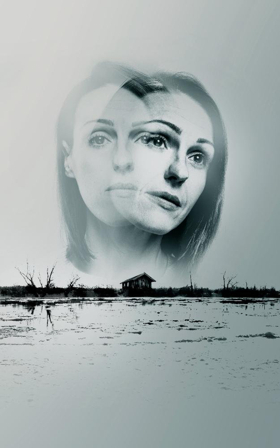Review Roundup: What Did The Critics Think of the West End Revival of FROZEN?
|

Frozen is a psychological thriller about a mother whose child goes missing, directed by Jonathan Munby and will play a strictly limited twelve-week season at the Theatre Royal Haymarket from Friday 9 February 2018.
Cast includes Suranne Jones (Doctor Foster, Scott & Bailey) who plays the role of Nancy, Nina Sosanya (W1A, Last Tango in Halifax) who plays the role of Agnetha, Jason Watkins(Line of Duty, Taboo, W1A) who plays the role of Ralph.
Let's see what the critics had to say...
Natasha Tripney, The Stage: The production momentarily gains in strength and tension when the characters begin to interact, when Agnetha interviews Ralph in prison, but Munby can't resist over-salting things. His staging forever shows when it could tell. When a young girl scampers on stage near the end to stare at Ralph accusingly, it's too much - it feels cheap,
If anything, Munby's production serves to highlight the cracks and flaws in Lavery's humane, toothsome, and intriguing play, to reduce it as a piece of writing. I've seen chilling productions of this play in studios spaces, but despite the calibre of the actors involved, on this vast West End stage it feels exposed.
Dominic Maxwell, The Times: In fact it is such an intimate piece that the high-tech, smeared, moving screens that form the backdrop of Paul Wills's set clog up Jonathan Munby's revival. I daresay it was an effort to make an intense chamber piece reach to the back of a 900-seat theatre. Yet the show would do better to zero in on the spare, inventive staging of the scenes themselves and spend less time surrounding itself with cloyingly tasteful monochrome sadness.
Aleks Sierz, The Arts Desk: At times, this large-scale production, designed by Paul Wills, with its soaring set, huge projections and thumping filmic music threatens to dwarf the human beings on stage, but at least the numerous scene changes are rapid and efficient. And the storytelling is gripping and satisfying. If the play at times is too neat for its own good, and not everyone will enjoy being lectured at by the Agnetha character, it is also compelling as a psychological thriller and convincing as a portrait of human malevolence. And hey, this Frozen even has a couple of moments when one of the characters says the magic words: "Let it go."
Sarah Crompton, WhatsOnStage: It's an interesting exploration and the nature of the story - proceeding through a series of monologues and duologues - means it is always gripping. But the play takes a long time to get going. It is only really at the close of the first act, when Nancy is challenged by her unseen and neglected living daughter, to try to forgive that it feels as if it has reached the point it was travelling to all along. As if sensing this, director Jonathan Munby and designer Paul Wills have surrounded the actors with a lot of busy scene changes, with furniture sliding on from the sides and screens coming down from above covered in images of cracking ice and lost children. There's a lot of ominous music too from Rupert Cross.
Michael Billington, The Guardian: But the outstanding virtue of the play is that it shows that vindictive hatred leads nowhere and we need to comprehend, as King Lear says, "what cause in nature makes these hard hearts". The performances match the intensity of the writing. Jones captures excellently the contradictory emotions of Nancy, whose grief is accentuated by a residual guilt and whose lust for revenge gives way to a destructive forgiveness. She also makes the most of a key line where Nancy asks Agnetha how much "time and energy" she devotes to those who have suffered loss as opposed to the killers. Even if too much is made of Agnetha's fraught nature, Sosanya shows very well that professional skill is no guard against private unhappiness. But the most remarkable performance comes from Watkins as Ralph. He is both chilling and wheedling in his approach to the unseen Rhona.
Dominic Cavendish, The Telegraph: Her face movingly wintry and drawn, Jones doesn't disappoint - but, given the slow-burn, low-heat script, nor does she have much scope to wow. For much of the evening - which soon whizzes us across 20 years, to the point where the prolific culprit is apprehended - the focus is on the monster rather than the mother. The night - provocatively - belongs to Jason Watkins, who gives one of the finest performances of his career as the serial child-killer.
Watkins's forte is comedy, and here he weaponises his natural affability. Just hearing his drably dressed Ralph blithely discuss, in a warm Brummie accent, his "centre of operations", seeing him caress his illicit video hoard and watching him lock eyes on his young prey, spied in the distance, before conducting a one-sided conversation of calculated friendliness, is enough to induce nausea. Lavery isn't after simple revulsion, though. Thanks to the intervention of Agnetha, a panic-prone American criminal psychologist (played, nicely, by another face from the BBC mockumentary W1A, Nina Sosanya), the neurological explanation for Ralph's empathy-void is laid out via a series of aptitude tests that affirm his (abuse-caused) stunted development.
Comments
.png)
|
.png)
|
Videos

